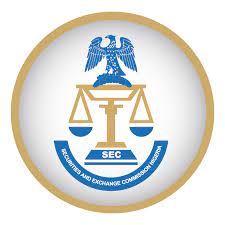Stakeholders across various sectors have called on the Securities and Exchange Commission (SEC) to develop a comprehensive regulatory framework for crypto assets in Nigeria.
This appeal was made during the recent first annual conference of the Association of Capital Market Academics of Nigeria (ACMAN), where experts from academia, legislature, capital markets, banking, and ancillary sectors gathered to discuss the future of cryptocurrencies in the country.
The conference, themed ‘Crypto Assets and the Nigerian Capital Market,’ saw participants unanimously agree on the permanence and significance of crypto assets in the global and Nigerian financial ecosystems.
President of ACMAN, Prof. Uche Uwaleke, highlighted the dual perception of crypto assets as both major disruptors and significant risks to the conventional financial sector.
“A systematic risk is a risk you cannot diversify,” Prof Uwaleke noted, emphasising the need for a regulatory framework to manage such risks.
Delivering a keynote address titled ‘Crypto Assets and the Nigerian Economy: Implications for Financial Markets Regulation,’ SEC Director-General (DG), Dr. Emomotimi Agama, revealed that over 15,000 cryptocurrencies exist globally, with Bitcoin being the most prominent.
He stated that the total market capitalisation of all cryptocurrencies stands at an impressive $2.59 trillion. Despite this, Nigeria currently lacks a comprehensive regulatory framework for crypto assets, and the SEC’s involvement has been limited to issuing advisory notes on risk management.
Dr. Agama pointed out that even in advanced economies like the United States, the crypto market remains inadequately regulated. However, he stressed the growing recognition of the need to develop regulatory measures for crypto assets.
“We must develop along the thought process,” he asserted, highlighting the widespread adoption of cryptocurrencies among Nigerians. He cited a 2023 survey showing that approximately 33.4 percent of Nigerians own or use cryptocurrencies, one of the highest adoption rates globally.
Dr. Agama also stressed that cryptocurrencies offer significant benefits, such as providing a more efficient and cost-effective method for remittances. He noted that many Nigerians, particularly the youth, are tech-savvy and have embraced digital currencies as a hedge against the naira’s devaluation and for various other purposes, including investments and online purchases.
The commission’s DG acknowledged the substantial opportunities and challenges that crypto assets present to Nigeria’s economy. He advocated for a balanced regulatory approach to harness these benefits while mitigating associated risks.
“Collaborative efforts from regulators, industry stakeholders, and the public are crucial for developing effective regulations,” Dr. Agama said, calling for continued dialogue and cooperation to ensure a secure and innovative financial ecosystem.
He also highlighted the disadvantages of the current lack of a comprehensive regulatory framework, including investor uncertainty, cybersecurity threats, and inadequate financial literacy, which make the population vulnerable to scams and risky investments. He disclosed that a bill currently before the National Assembly includes extensive provisions on crypto assets aimed at protecting investors and mitigating potential risks.
In a goodwill message, Senator Osita Izunaso, Chairman of the Senate Committee on Capital Market, affirmed the committee’s commitment to developing a comprehensive regulatory framework for crypto assets. He stated that the committee’s approach would focus on investor protection, market integrity, financial stability, and fostering innovation and growth.
The stakeholders’ call to action underscores the urgency for the SEC to establish robust regulations that will propel greater interest and investment in the crypto sector while safeguarding against its risks.




